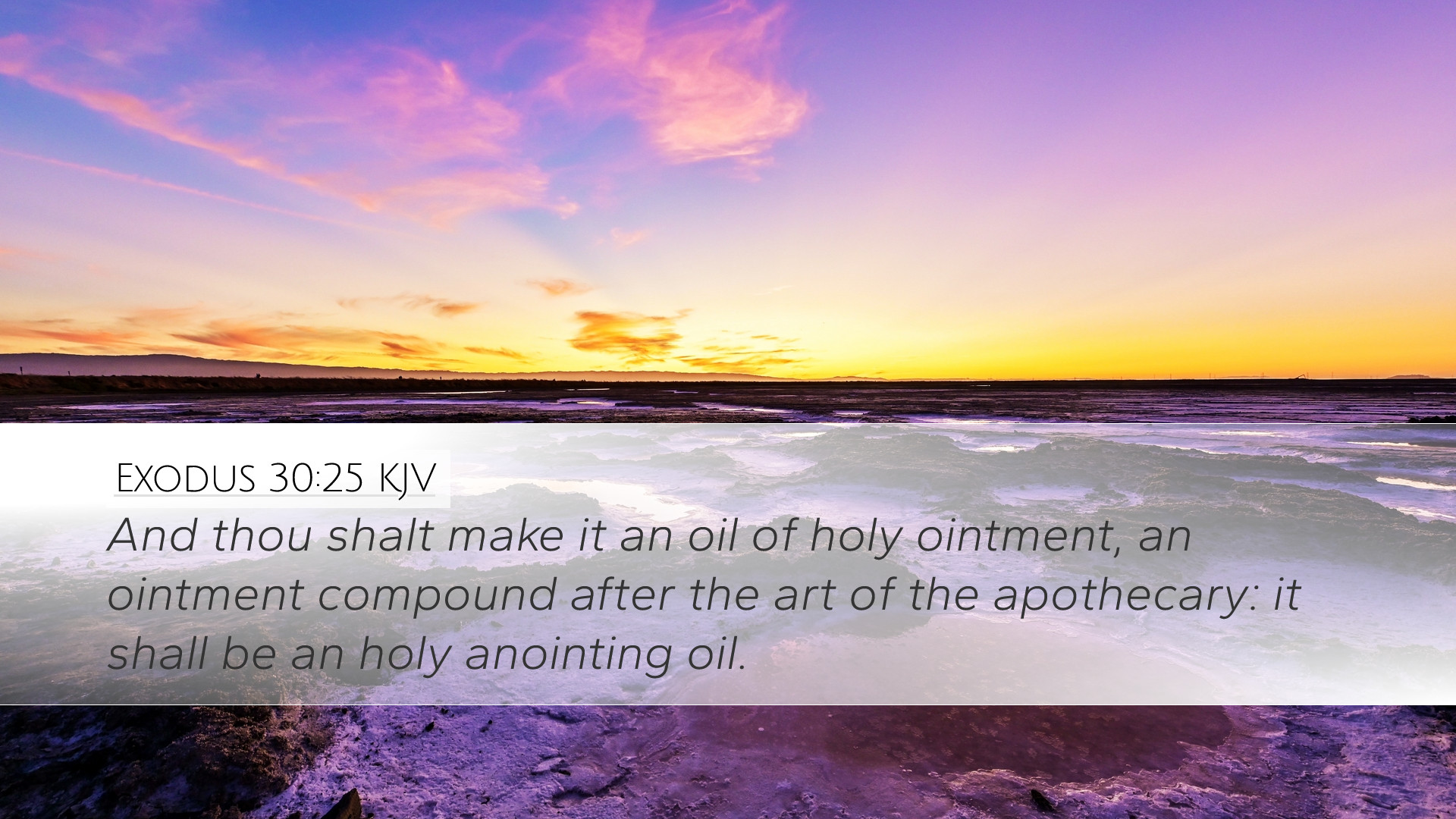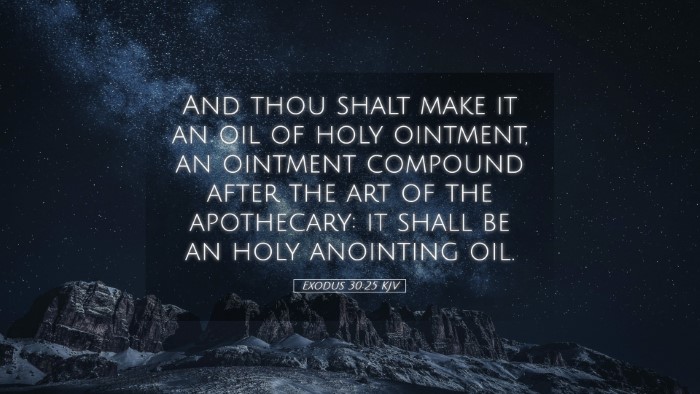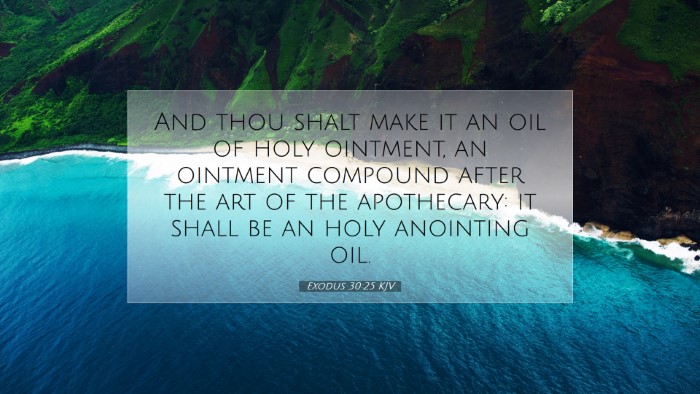Commentary on Exodus 30:25
Verse Context: Exodus 30:25 states, "And thou shalt make it an oil of holy ointment, an ointment compound after the art of the apothecary: it shall be an holy anointing oil." This verse is situated in the instructions given to Moses regarding the tabernacle and the objects within it, establishing the significance of holy anointing oil in the consecration of priests and sacred items.
Understanding the Holy Anointing Oil
The making of the holy anointing oil is a vital aspect of the ceremonial practices of Israel. The oil symbolizes divine selection and empowerment. Its preparation according to divine prescription highlights the importance of obedience and reverence in approaching sacred tasks.
Insights from Commentators
-
Matthew Henry:
Henry emphasizes the significance of the anointing oil as a symbol of the Holy Spirit. He suggests that the oil, being sacred and uniquely prepared, prefigures the Holy Spirit's anointing upon Christ and His followers. The careful preparation speaks to the need for holiness and divine approval in all matters of worship.
-
Albert Barnes:
Barnes provides practical insights regarding the purpose of the anointing oil, noting that it serves to sanctify objects and persons for God’s service. He mentions how the characteristics of the oil, derived from precious spices and symbolism, illustrate both the beauty and the sacredness of God's provision. Anointing sets apart those who are appointed to serve God in a special capacity.
-
Adam Clarke:
Clarke offers an analysis of the ingredients and their meanings, detailing how each component reflects various attributes of God. He notes that the meticulous nature of the preparation reflects the seriousness of engaging in the ministry. Also, he warns against the misuse of such sacred elements, stating that the oil is not to be imitated for profane purposes, hence underscoring the sanctity associated with holy things.
Theological Implications
This command regarding the anointing oil carries significant theological weight, particularly in the articulation of the nature of holiness and consecration in the Old Testament context. The oil serves as a tangible reminder of God’s presence and the anointing of leaders and priests in the Israelite community.
Symbolism of Anointing
In biblical literature, anointing is a powerful act representing divine endorsement and empowerment. It suggests that those anointed are set apart for God's work. We observe this typology present in numerous biblical figures, such as the prophets, priests, and kings, culminating in the anointing of Jesus Christ, the ultimate Priest and King.
Application for Today’s Believers
For modern-day believers, understanding Exodus 30:25 encourages a reflection on the necessity of being consecrated and set apart for God’s purpose. Just as the oil was prepared with care and intention, so too must our lives reflect a commitment to holiness, service, and reverence for God’s calling.
Practical Ministry Considerations
- Holiness in Worship: The oil's sacred nature signals the need for a holy approach to worship. Pastors and leaders should consider their preparation and the environments in which they minister.
- Empowerment by the Spirit: In the Christian narrative, anointing transcends physical oil, relaying the ongoing anointing of the Holy Spirit upon all believers for service in God’s kingdom.
- Sacred Responsibility: Just as the elements of worship were treated with utmost reverence, modern ministry calls for a deep respect for the sacred, ensuring that the practices within the church honor God's holy mandates.
Conclusion
Exodus 30:25 provides a foundation for understanding the interplay between divine instruction, holiness, and worship. The anointing oil is more than a physical substance; it represents the very essence of God’s presence amongst His people. As such, it serves not only as an ancient practice but continues to inform the faith journey of believers today, charging them with the responsibility to pursue holiness and seek the empowerment of the Holy Spirit in every aspect of life and ministry.


